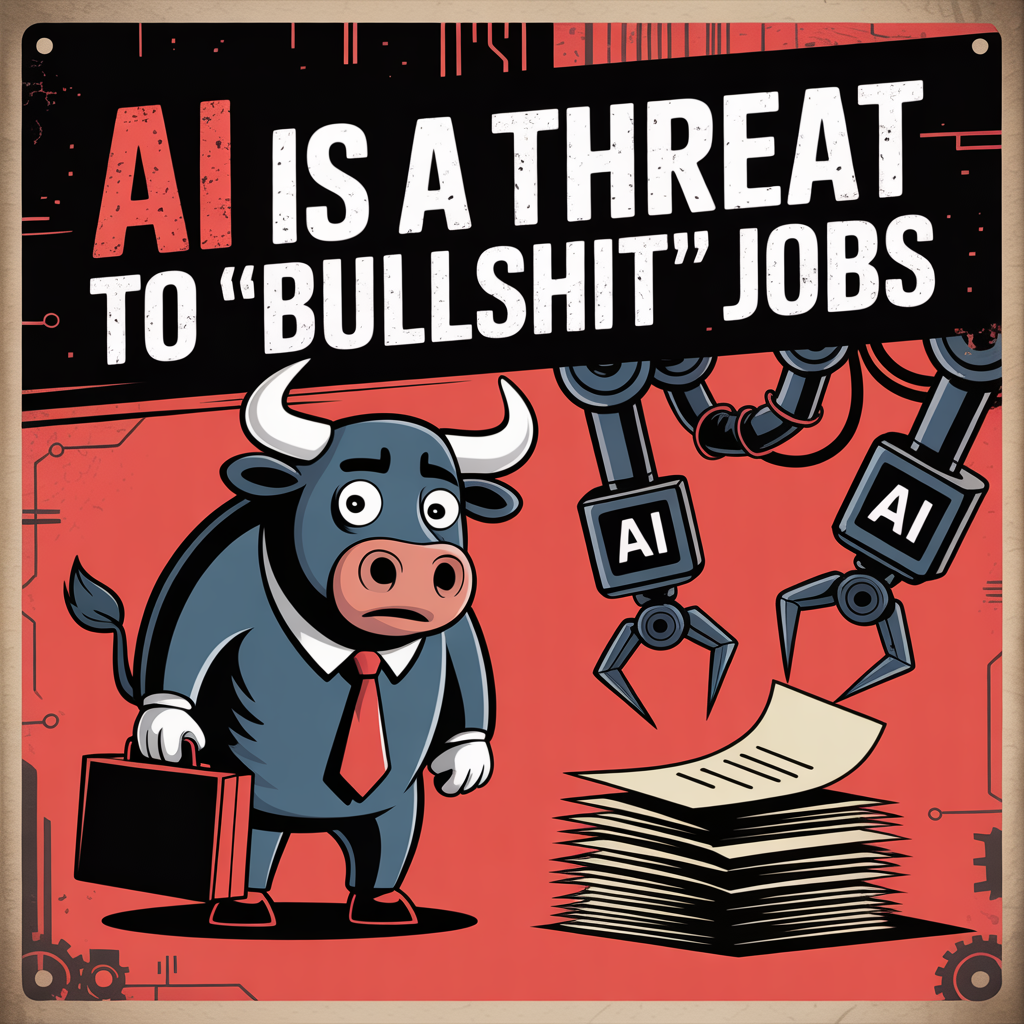Friday, September 26, 2025
Friday, September 26, 2025

Dr. Leandro Herrero:
David Graeber, the late anthropologist who died at 59 and was prolific and energetic in his left-wing politics, coined the term “Bullshit Jobs”. He first introduced it in a 2013 viral essay and later expanded it into a 2018 book.
Graeber argued that a significant portion of jobs in modern economies are essentially meaningless and contribute nothing of value to society. These “bullshit jobs” are roles where even the workers themselves recognize the pointlessness, yet must pretend their work is valuable. He estimated that 40% or more of all jobs might fall into this category.
Unlike “shit jobs” (unpleasant but essential, like garbage collection), bullshit jobs lack any meaningful function. They often persist due to bureaucratic inertia, corporate politics, or the need for companies to look busy and important.
Graeber even offered a playful taxonomy: flunkies, who exist to make their superiors feel important; goons, who work in aggressive or manipulative roles such as corporate lawyers or PR operatives; duct tapers, who fix problems that should not exist in the first place; box tickers, who enable organizations to claim they are doing something without actually doing it; and taskmasters, who assign unnecessary work to others.
The psychological toll is real. Humans derive meaning from useful work; being trapped in meaningless employment breeds depression, anxiety, and alienation. Workers often develop elaborate rituals to look busy while achieving little.
Graeber saw this as both a symptom and tool of capitalism’s dysfunction, where the threat of unemployment keeps people compliant, and bureaucracies create jobs that serve power structures rather than human needs.
AI is particularly good at automating routine, rule-based tasks that require little creativity or judgement — which describes many bullshit jobs perfectly. Things like generating reports no one reads, processing forms through endless approvals, or managing unnecessary bureaucratic workflows are prime targets.
Much of the administrative and middle-management layer is vulnerable: data entry, basic analysis, scheduling, routine correspondence, compliance checks. AI thrives in these domains.
There’s a delicious irony here — one that would likely make Graeber smile: a technology eliminating jobs that arguably shouldn’t exist. AI may be doing society a favour by forcing us to ask what work actually matters.
Following Graeber’s logic, eliminating bullshit jobs through AI could be liberating, freeing people to do meaningful work. “AI will steal our jobs” — but what if the jobs being “stolen” are ones we shouldn’t be doing anyway?
Of course, paradox lurks. Organizations could just as easily use AI to create new forms of bullshit jobs (say, armies of “AI prompt engineers” solving problems that don’t exist). Would the displaced find meaningful alternatives, or simply migrate to different forms of pointlessness?
People currently in roles they suspect are bullshit might feel defensive. Nobody likes being told their livelihood is meaningless, even if they secretly agree. Then there’s the “jobs are sacred” camp, who hold that any employment is inherently good, regardless of utility.
Corporate leaders and HR departments will hardly welcome challenges to their structures. And one risks being labelled “anti-employee” when the argument is really for more meaningful work.
Graeber himself faced criticism, but his ideas resonated. His original essay went viral precisely because it struck a nerve. Many workers secretly know their jobs are pointless, and feel relief when someone finally says it out loud.
Much is being said about AI. What unsettles people is not its power, but the suggestion that it might free them from meaningless drudgery.
The challenge goes deeper than AI itself. What would Graeber say today about the proliferation of corporate “functions” invented in recent years — as if the sky would fall without them? A casual LinkedIn browse reveals titles that border on parody: Chief Happiness Officer, Digital Prophet, Culture Evangelist, Growth Hacker Ninja, Chief Storytelling Officer.
Graeber, can you help us from the other side?
+++
Dr Leandro Herrero – Chief Organizational Architect at The Chalfont Project, Author, International Speaker and Psychiatrist. For the past 25 years, Dr Herrero and his team have been transforming culture in organizations via his pioneering Viral Change™ methodology. He is a Strategic Columnist. Follow Dr Herrero on LinkedIn for all the latest updates.
Written by: Editor
© 2025 Stratpair Ltd., trading as Strategic. Registered in Ireland: 747736